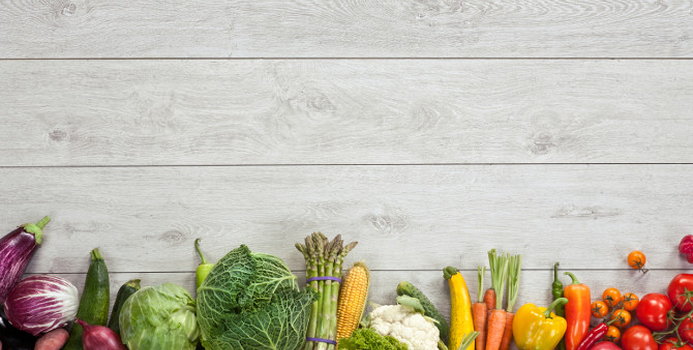A vegetarian diet and its many forms, such as lacto and/or ovo-vegetarian, pescatarian or vegan, can easily meet all nutritional requirements, though there are certain considerations to monitor when eating a plant-based diet to ensure access to all essential vitamins, minerals and fatty acids. A vegetarian diet, like any diet, could pose a risk of deficiency if the proper foods are not consumed. The good news is that the foundation of vegetarian diets are fruits, vegetables, whole grains and legumes which are all full of healthful nutrients. Studies show that properly planned vegetarian diets are healthful and appropriate for all age groups and populations. In this article, the term "vegetarian" will be used as an umbrella term for the many types of plant-based diets.
1. Calcium
Vegetarians who do not consume dairy can easily meet their calcium needs through dietary sources. Vegetarian calcium needs are the same Dietary Reference Intakes as the general population. Greens such as spinach, turnip and collard greens are rich sources of calcium, as are all types of beans. Calcium fortified non-dairy milks as well as fortified tofu and orange juice can supply calcium in a vegetarian diet as well. Though plant-based diets may be higher in compounds like oxalic acid and phytic acid which may interfere with the absorption and retention of calcium, studies show that vegetarian and vegan diets are not associated with an increased fracture risk if calcium intake is adequate.
2. Omega-3
Omega-3 fats are considered essential fatty acids because humans must ingest them from external sources in the diet. Vegetarians who consume fish have access to an animal-based omega 3 source eicosapentaenoic acid (EPA) and docosahexaenoic acid (DHA), but vegans and vegetarians who do not eat fish will need to seek plant-sources of alpha-linolenic acid (ALA) which converts in the body to EPA and DHA at varied rates. In place of fish, vegetarians can consume flaxseeds, flaxseed oil, hemp seeds, chia seeds, walnuts and algae sourced omega-3 fatty acids to meet their needs.
3. Iron
Studies have shown vegetarians do not experience iron deficiency anemia more than non-vegetarians but may have lower iron stores in the body. Low iron can result in anemia, but keep in mind that low iron is not the only reason anemia can occur. Iron in meat, poultry or fish is considered more easily utilized by the body and is called heme iron. Plant-based foods are also rich in iron, especially foods like soy milk, tofu, beans, lentils, quinoa and greens like spinach and Swiss chard, but this version of iron is non-heme. Iron absorption can be enhanced by vitamin C so consuming fresh fruits and vegetables rich in this vitamin can help vegetarians assimilate the iron they get from their diet. Compounds called polyphenols in coffee and tea can reduce iron absorption as can calcium supplementation and phytates in beans and some grains. For this reason, the Recommended Dietary Allowances for iron are 1.8 times higher than those who consume meat, poultry or fish.
4. Zinc
Zinc plays an important role in the body's immune system and deficiency is rare because of the readily available food sources. The Recommended Dietary Allowances for zinc are 11 mg per day for men and 8 mg per day for women. For the vegetarian or vegan, legumes, oats, nuts and seeds are rich zinc sources. Phytate, a compound found in certain plant foods, can reduce the body's ability to absorb zinc from plant foods so be sure to include a variety of sources each day.
5. B12
Because B12 is uncommon in non-animal sources, consuming enough vitamin B12 may be the most difficult part of establishing a healthy plan for vegetarians who do not eat eggs or dairy. Some nutritional yeast has added B12 and while sea vegetables or algae may contain some B12, the research is unreliable on the quality or accessibility of these sources. Fortified foods or supplements are likely the best sources for B12 in a diet without any animal products at all.
Ginger Hultin, MS, RD, LDN is a Chicago-based dietitian who specializes in integrative oncology. With a Master's degree from naturopathic Bastyr University, she practices plant-based nutrition and specializes in lab interpretation and appropriate supplementation. Ginger also had a passion for fitness and maintains both group fitness and personal training certifications.




